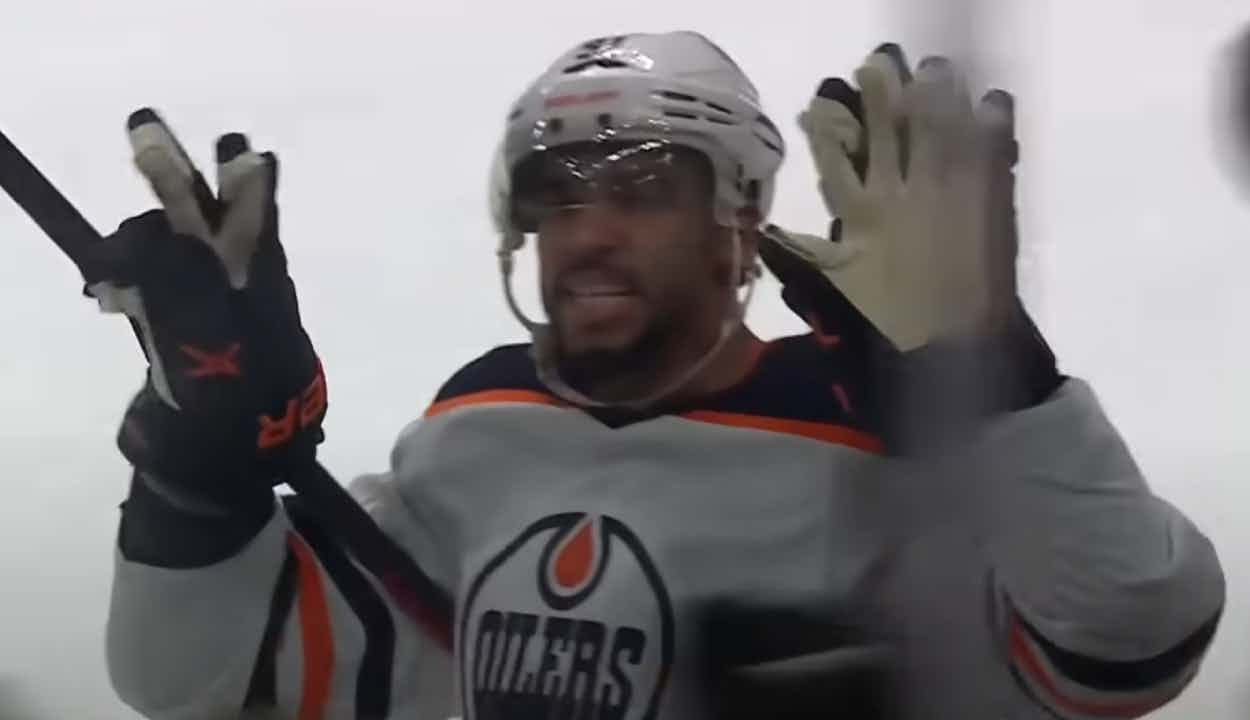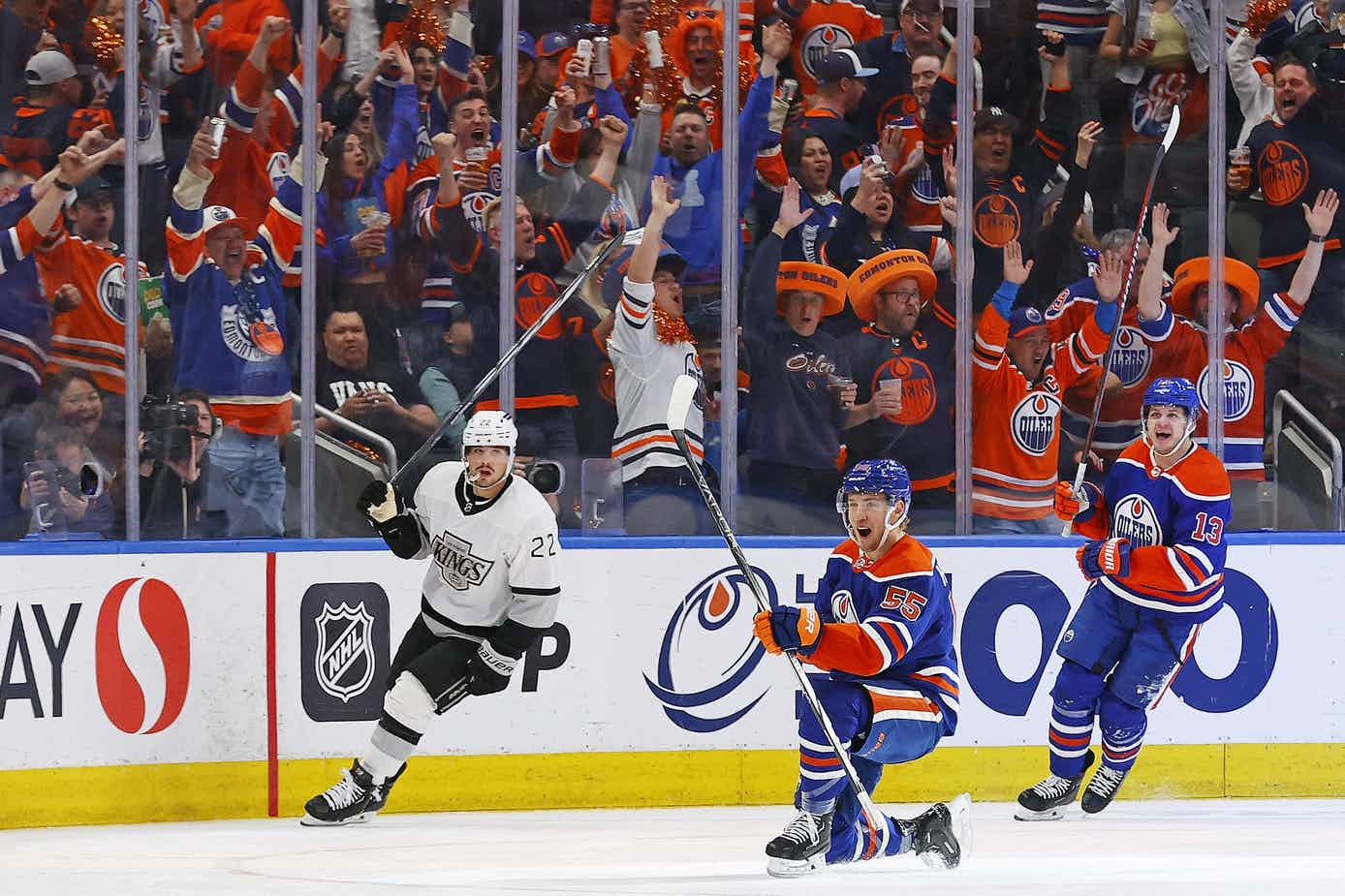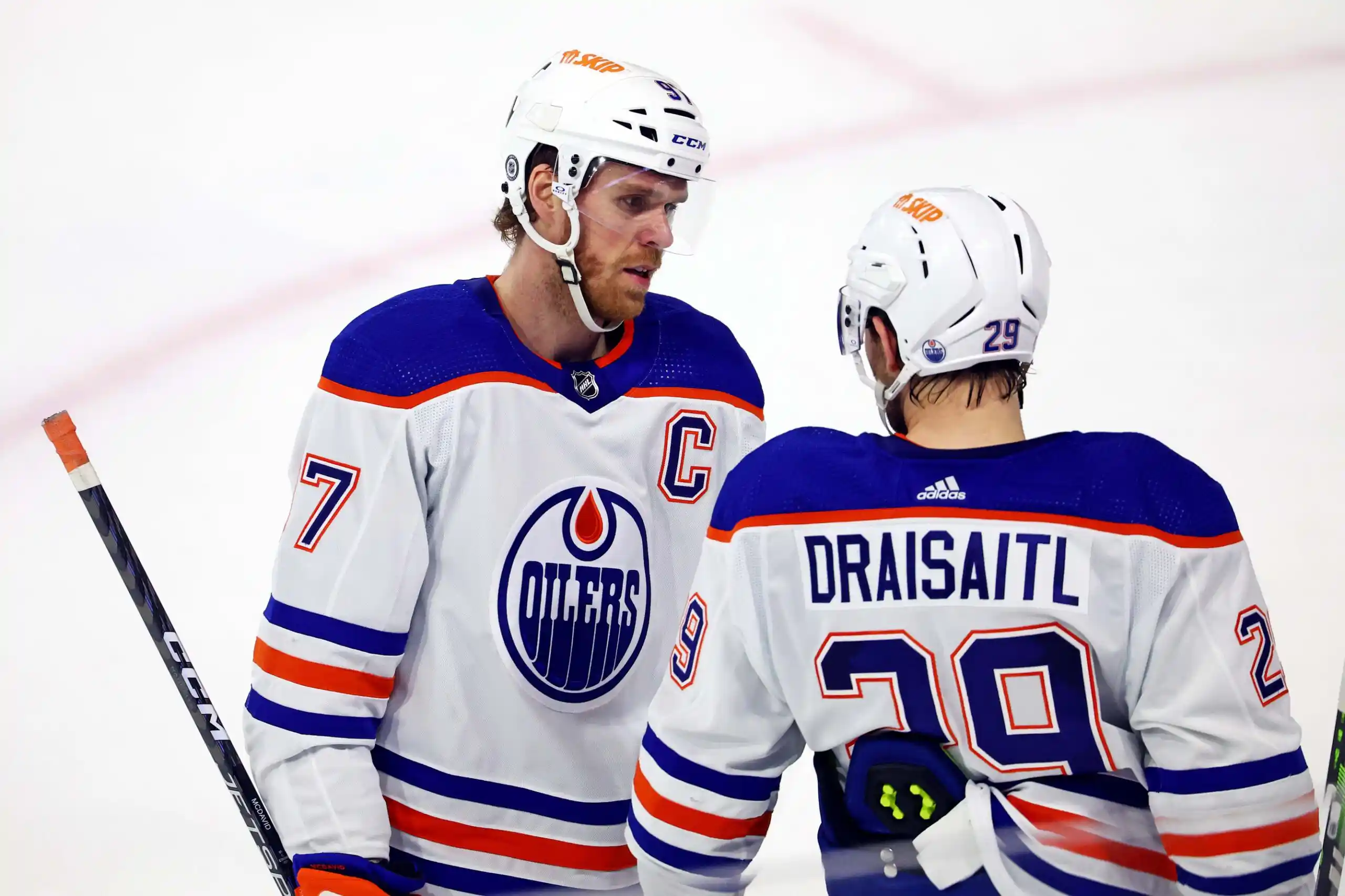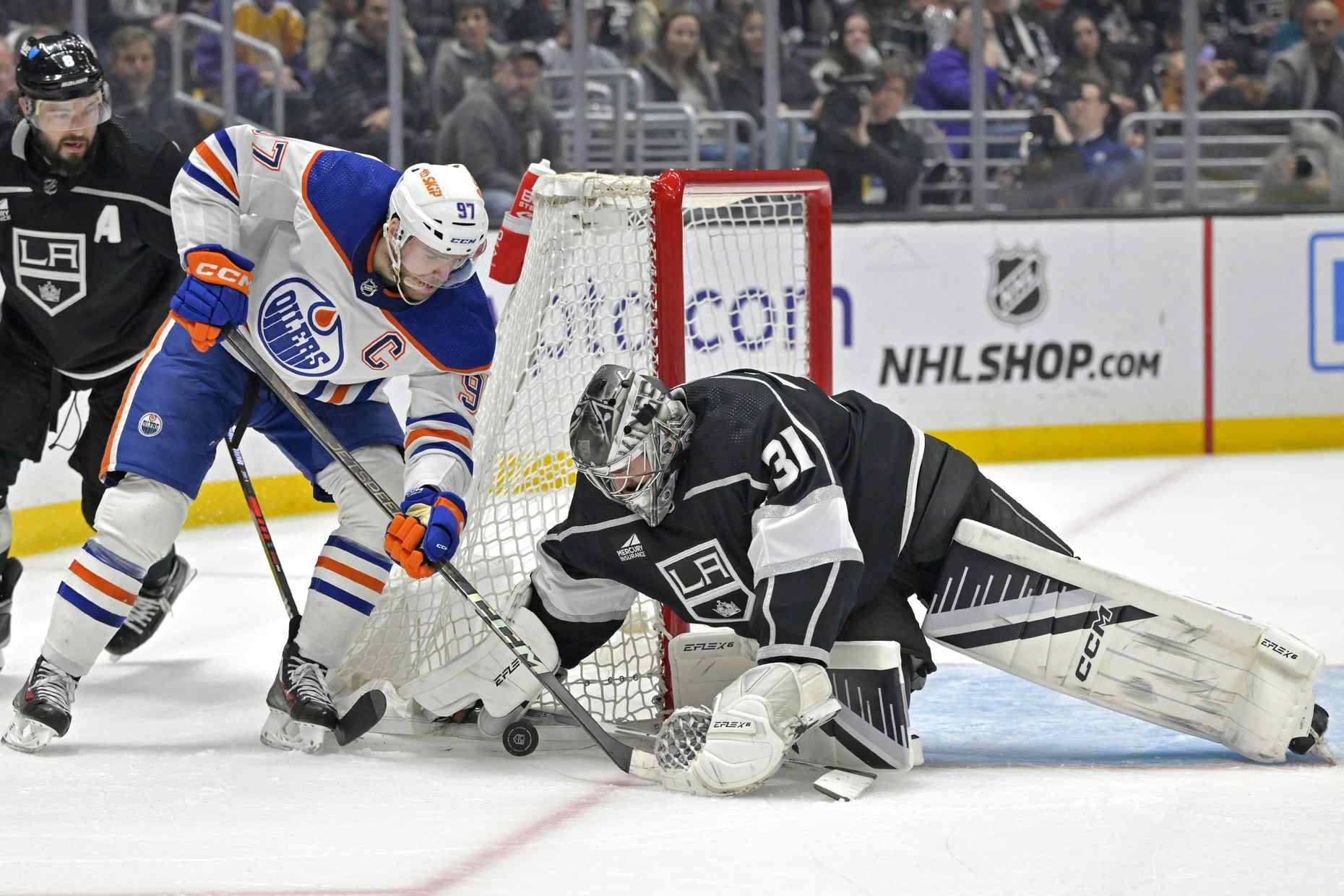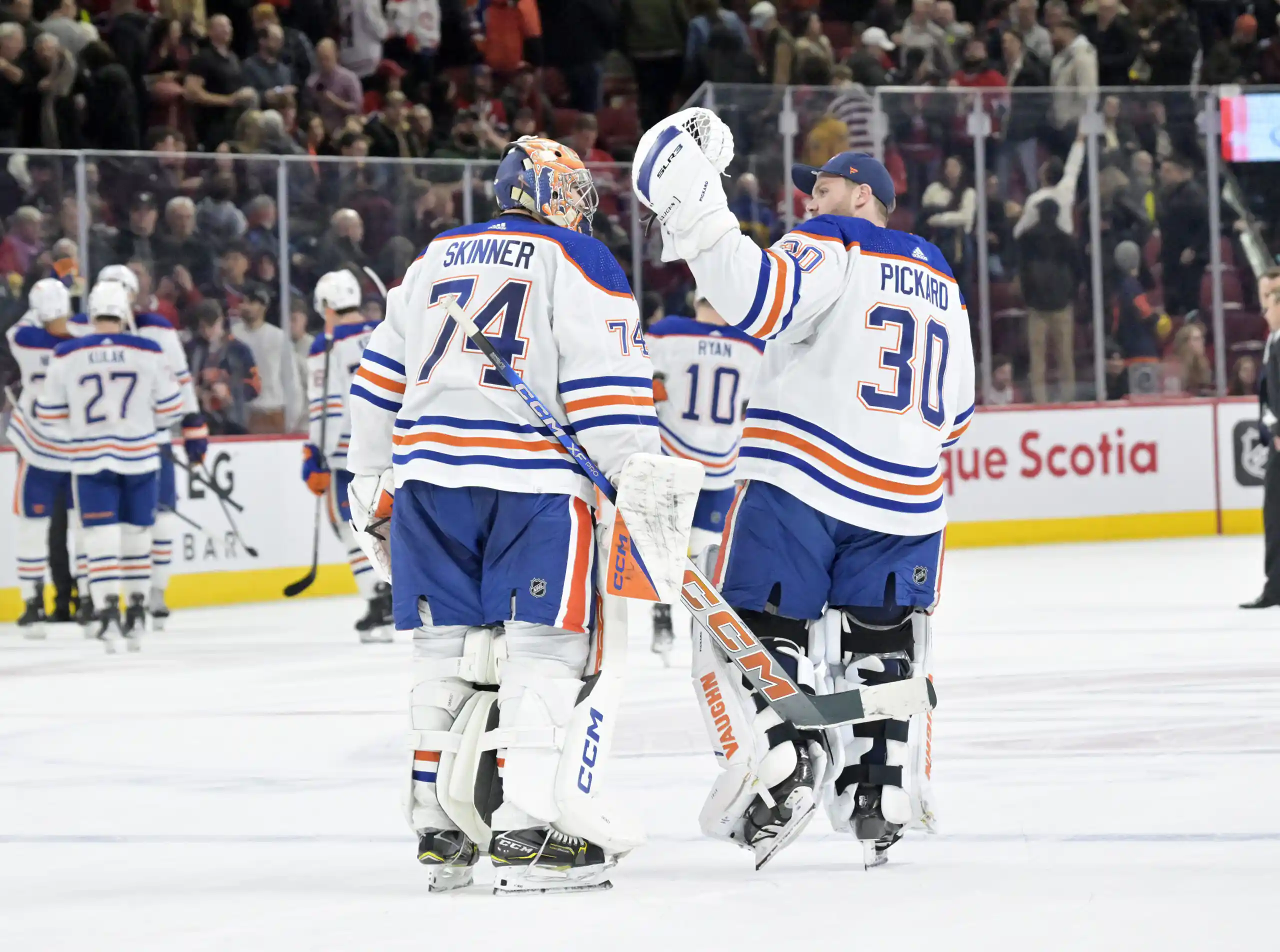Keith Gretzky’s Career Comes Full Circle
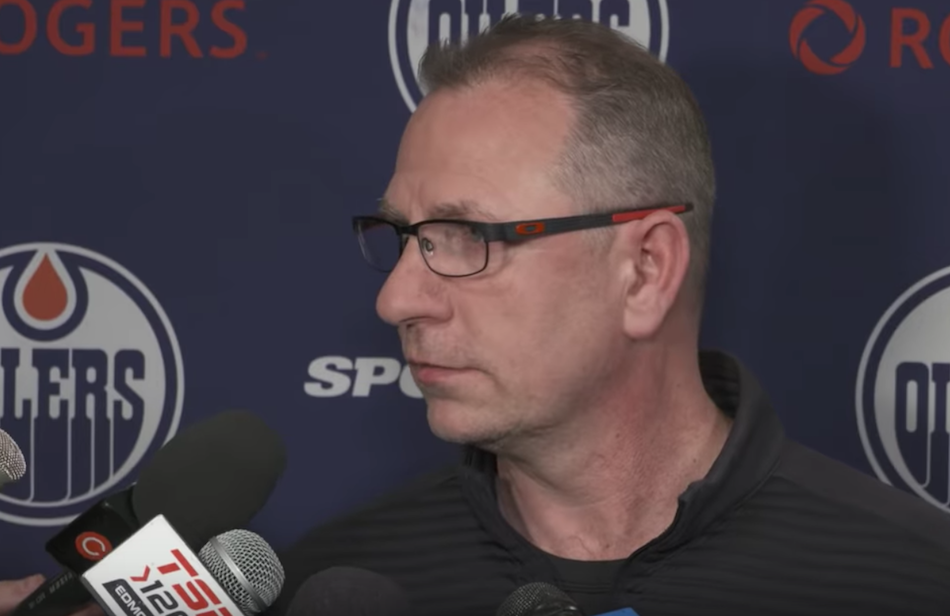
By Jason Gregor
4 years agoKeith Gretzky was a good hockey player. In 1985 he had 93 points in 66 games for the Windsor Spitfires of the Ontario Hockey League and that summer the Buffalo Sabres selected him in the third round. Two years later he tallied 101 points in 64 games between Windsor and Hamilton. He spent seven seasons in the minors but never played in the NHL. He is six years younger than older brother Wayne, the most prolific scorer in NHL history, and had to grow up in a massive hockey shadow.
He retired from hockey in 1993 after his second season with the San Diego Gulls of the now defunct International Hockey League (IHL). He was hired as an assistant coach with the Tri-City Americans of the WHL for the 1993/1994 season and has been in hockey ever since. But he didn’t start in the NHL. He worked his way up.
He is now the assistant GM of the Edmonton Oilers, and the GM of their AHL affiliate Bakersfield Condors. His pro career has come full circle. His career in hockey operations actually began in Bakersfield in the mid-1990s.
A new minor pro league, West Coast Hockey League (WCHL), started in 1995/1996. It was equivalent to the East Coast Hockey League, and it began with teams in Bakersfield, Fairbanks, Fresno, San Diego, Reno and Anchorage. Each team also played four exhibition games against a team called Red Army, based out of Anchorage.
The WCHL lasted eight seasons. Bakersfield was the Fog for three seasons, then changed their name to the Condors for the final five years before joining the ECHL when it absorbed the WCHL.
Gretzky was the head coach of the Fog for their first three seasons, and during his third year he also became GM after their GM, Mike Butters, was fired. Back then you had a budget for players, so it was his first foray into understanding the salary cap.
“That was the hardest part,” explained Gretzky. “You couldn’t pay much, and the teams I was on never cheated. We didn’t pay guys under the table. I acquired a player, who was making $1,000, and I could afford that under our cap, but when he arrived he said, ‘I get another $850 on top of that.’ I didn’t have that and told him I could get him his own Easton pattern (laughs). That was all I could offer as a bonus.”
That was over 20 years ago and things have changed a lot in minor professional hockey, but that’s where Gretzky entered hockey operations.
Then he went to the Asheville Smoke of the United Hockey League and was head coach and GM. Asheville is in North Carolina, two and a half hours south east of Knoxville. Not a hockey hotbed at the time, but the owner, Dan Wilhelm, was from Canada and he called Gretzky and asked him to come.
Gretzky explained the GM role then was different than it is now. Wilhelm was hands on and they were both involved in signing and acquiring players. It was a great learning experience into managing a team.
His younger brother, Brent, was on the Smoke. He and Lindsay Vallis (13th overall pick in the 1989 NHL draft) were their best players. Vallis had 100 points in 66 games and Brent Gretzky had 70 points in 32 games. It was there where Keith learned the importance of depth.
“Chevy (Kevin Cheveldayoff) was the GM of the Chicago Wolves of the IHL,” said Gretzky. “He called me and asked if he could have Brent for the weekend. It would hurt our team, but it was good for the player to go up. We weren’t affiliated with the Wolves, but at that time teams would call and see if you’d loan them a player from time to time. Well Brent went up and after about a week Chevy called me and said he was going to keep him. That wasn’t good for me or our team (laughs), but the Wolves won the Championship that year so it worked out for my brother.”
He spent two seasons with the Smoke and in 2001 he was hired as an amateur scout by the Phoenix Coyotes. In the summer of 2006 he was promoted to Director of Amateur scouting. He is now in his 19th NHL season.
It is unfair to suggest Keith Gretzky is an assistant GM in the NHL because of his last name. Did it help him get his foot in the door back in 2001? Sure, but he put in the work, and many long hours, to move up. Most often in life you get an opportunity based on who you know or someone giving you a strong recommendation, but that only gets you in the door.
Ken Holland is the fifth GM Gretzky has worked under in the NHL and the Oilers are his third NHL organization. He has done a good job of earning his own way in the NHL.
He is very proud of his surname, but his tenure in NHL hockey operations is related much more to his work ethic and evaluation skills than his last name.
NEW TITLE…

I spoke to Keith about his new title of Assistant General Manager. He will be the GM of Bakersfield and also be heavily involved in amateur scouting.
Jason Gregor: Can you outline and describe exactly what your responsibilities are as the GM in Bakersfield?
Keith Gretzky: Oh it’s one of those things where you’ve got to make sure that the hockey club is represented down there and the players know that you’re there to watch them, that they’re not forgotten about. I think it’s very important they see a familiar face all of the time. Someone who is watching them and rating them and being there for any help. I think that’s a huge thing and we have a lot of young players who are going to be down there — [Evan] Bouchard and [Dmitri] Samorukov, [Ryan] McLeod. It is good to have guys down there to support the coaches. Jay [Woodcroft] has done an unbelievable job there with his staff so it will be great to be a part of that.
Gregor: You didn’t hide the fact that you had been very interested in having the GM job here in Edmonton. Ken Holland is the GM and somebody with vast loads of experience, so what are you looking forward to the most in working and learning with Ken?
Gretzky: Just everything day to day on handling things. You know, as you’ve watched our club, we have some work to do. We’re (the management) a team and we’re going to try to fix this quickly, but we’re going to do it smartly. I think the biggest thing is that we’re all on the same page in regards to it’s not good to have a quick fix to give up something big that’s going to hurt us down the road. We know the pieces that we need and with some things that are all about experience, it’s great to be around Ken.
Gregor: We’ve heard from Craig Button and a lot of other draft publications. Most people have Jack Hughes and Kaapo Kakko as one and two and then the next tier, and then picks from number three all the way down to twelve or thirteen, depending on who you talk to, are interchangeable and it’s going to come down to who you like.
Do you see it being that close? Or do you have two tiers between picks three to 13?
Gretzky: I think you can go either way after the first couple of players. It could be what the team likes and doesn’t like. There are always surprises. Last year there were surprises and the year before that. So somebody always slides in and somebody is going to be disappointed. You’re going to be shocked that somebody is there. We picked Bouchard there last year, and we were surprised that he was there, but pleasantly surprised.
When draft time comes around and that night starts Friday, it’s one of those get ready and have your lists ready and you’re going to get a guy you want. At number eight we’re going to be walking away happy.
Gregor: Best player available, I know some people say it’s a cliché but it makes sense because outside of maybe three or four players, most of them are going back to Junior, NCAA or wherever they’re going to play, they’re not going to be in the NHL next year and maybe not even the year after that.
I see that in the first round, but does that change in rounds, three, four, five or later?
Gretzky: It depends on if you’re looking at a positional player and you’ve drafted say two centremen and the next guy on your list might be a centreman. You might have to sway off a bit and maybe get a right winger. It all depends on the player. Bob Green and his guys have done a great job of scouting the players, so it’s one of those wait and see, but it is also determined a bit by who you draft with the first pick. I think that’s going to be a big part of it. And then, you go from there.
Gregor: You guys have taken a goaltender in each of the past three years. Would you take another goaltender because they seem to be the toughest ones to analyze from a draft perspective?
Gretzky: Yeah, they’re the longest to develop unless you’re picking a goalie in the top eight. They’re the hardest to… they take the longest to get to the NHL unless you get a really high end goalie. It’s hard to predict goalies, but we’re focussed on a few areas we think we need to draft. However, if we have a goalie high on our list and at a certain spot, we’d have to look at it. It will determine on what we have and what’s available and what round too.
Gregor: What about the way a defenseman shoots? There seems to be a void of right shot defensemen for most teams. If there was a one or two slot difference between two defenders, does the way a defenseman shoots impact drafting them?
Gretzky: Well you know what, you do look at it, but again you have to take the best player. If it’s a left shot over a right shot, unless they’re very, very close, and there is 1A and 1B and you want to lean that way, then to me I look at it. But you’ve got to take the best player and like you said before, anything can happen in six months. You could trade for a right shot, you could trade for a left shot. So those things open up and you’ve got to take the best player.
Gregor: Keith, you’re going to oversee Bakersfield. You obviously watched them a lot last year and for a long time Edmonton didn’t have a pipeline of players who were ready when given an opportunity, especially younger players in an offensive role.
Tyler Benson had the second most points (66) for an American League rookie in the last seven years. Do you look at Benson and think, ‘Hey, maybe this guy projects as an offensive player in the National Hockey League.’ You’ve got Bouchard who hasn’t played pro yet, Caleb Jones and Ethan Bear have played two years. Cooper Marody averaged over a point-per-game. How comfortable are you in believing you can fill some spots internally on the Oilers with players from your American League team?
Gretzky: I think it’s important that we have that belief and the players have shown that. I wouldn’t pencil anybody in. I think that we’ve done that before and it’s maybe hurt us a little bit. To me, those guys who have had some time in the American League have got to come in and earn a spot and this is a great chance for them.
Gregor: I appreciate what you just said, “That maybe they’ve done that in the past.” I think it’s safe to say [Kailer] Yamomoto and [Jesse] Puljujärvi are two examples. Ken Holland loves to overdevelop guys and I’m guessing you have the same mindset. Even if it’s an extra 20 or 30 games to start a game in the American League, usually there is no detriment to having a player mature a little bit more in the minors.
Gretzky: So true, and I think it really will help the player and help the hockey club. They have to earn that spot and that means if they’re down there an extra 20, 30 games, whatever it is, they’ve got to go down there and prove they need to be up in the NHL and they’ve earned that chance and we don’t just pencil them in. I think it’s going to take a little bit of time to develop a consistent pipeline, but we’re starting to get the young players coming in, so it should be good.
Gregor: Now that you’re overseeing Bakersfield, I’ve noticed a trend lately among some other teams. Granted it’s not many, but a few teams are starting to send the odd 20 year old back to Junior rather than have them in the American League. How do you balance out challenging them in pro or letting them develop one more year in junior? Do you think that’s a trend that’s going to continue?
Gretzky: I don’t know if it will change, but I think that it is one of those that depends on the team. How many right wingers they have signed. How much ice time is he going to get? Did he have injuries in previous years? We’re just excited to have all of these prospects come in and we want them to earn a spot, but it is something to consider.
Gregor: Do you believe having the title of assistant GM opens up even more doors for you down the road? You’ve never hidden behind the fact that ultimately you would like to be a GM. Do you think this tile and added responsibility will further your career?
Gretzky: You know what, for me, I’m looking to the help the hockey club of the Edmonton Oilers and if I’m there at this position for ten years and we’re winning and kids are developing and that’s what it’s all about. When the time is right it will happen and if it doesn’t happen that’s fine. I’m here to learn and to help out and to help this hockey club.
DRAFT CONTENT BROUGHT TO YOU BY ODDS SHARK

Odds Shark, your one-stop shop for picks, odds, betting news and trends – a resource for fans, bettors and media outlets looking for wagering info on all the sports and pop culture events you could want. Odds Shark is a proven powerhouse in the sports betting industry. We have odds from around the globe, giving you the opportunity to seek out the best sports betting information along with our recommendations for the best online sportsbooks on the planet. Fans and media outlets alike have access to decades of stats and trends from our easily accessible databases.
Recently by Jason Gregor:
Recent articles from Jason Gregor

